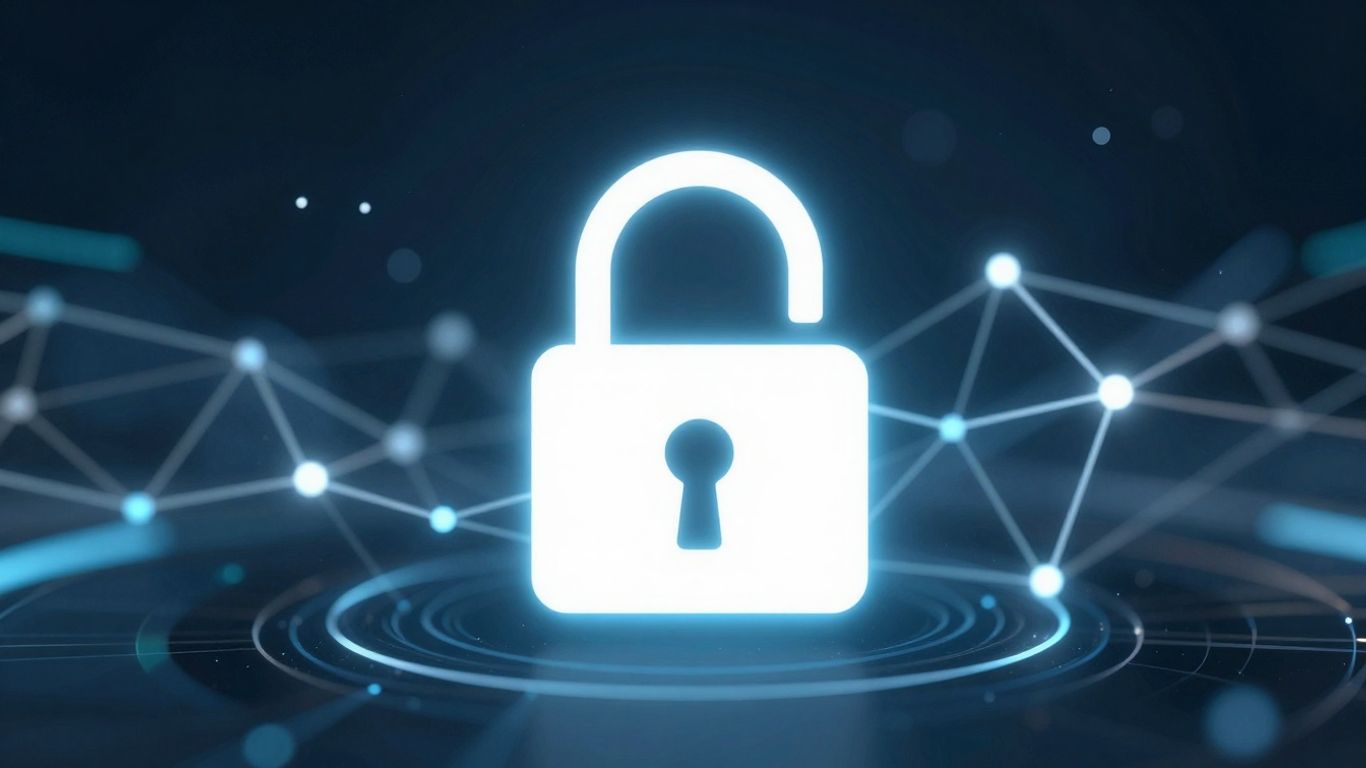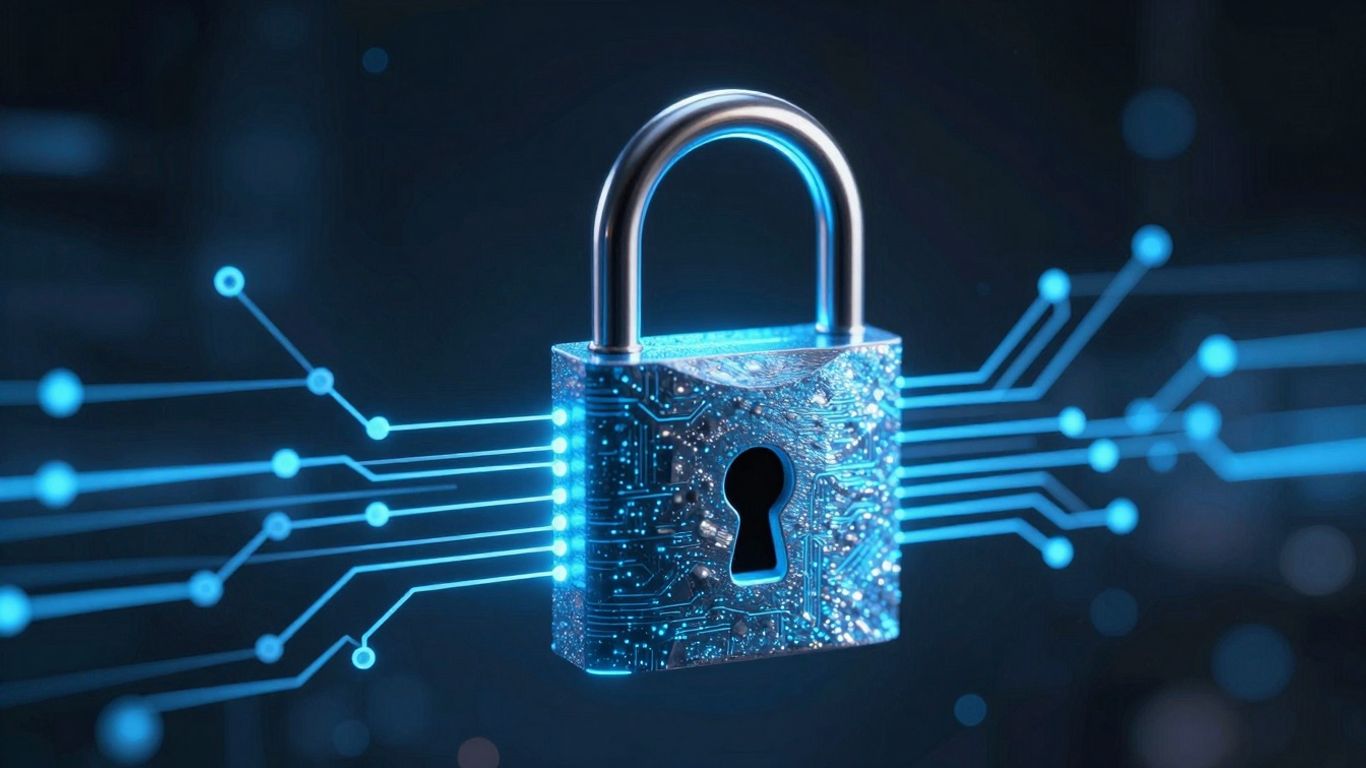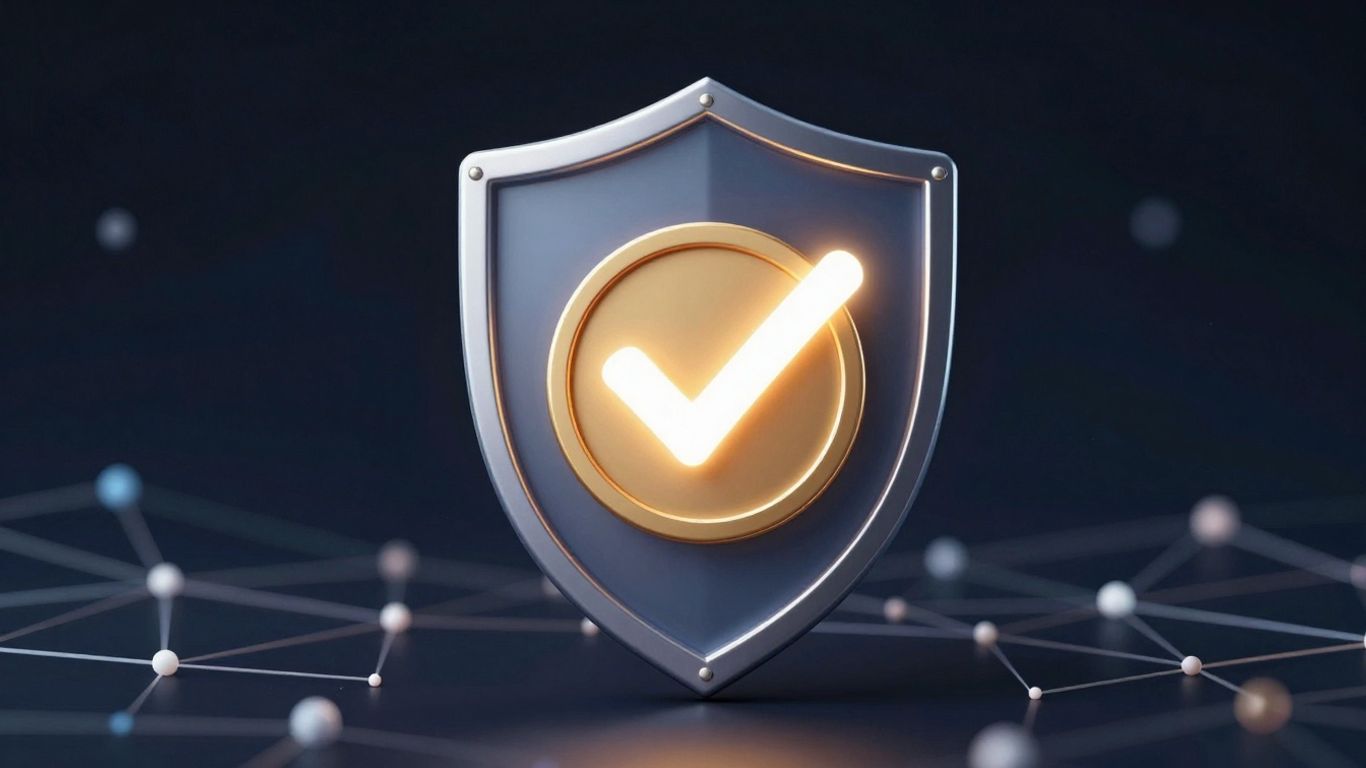[ newsletter ]
Stay ahead of Web3 threats—subscribe to our newsletter for the latest in blockchain security insights and updates.
Thank you! Your submission has been received!
Oops! Something went wrong. Please try again.
Master blockchain and audit for enhanced financial security. Explore revolutionizing financial records, transforming auditing, and the future role of professionals.





So, blockchain in auditing. It's a hot topic, and for good reason. Think about it: our financial records have always been a bit of a mess, right? Lots of paper, lots of chances for mistakes or, let's be honest, some sneaky changes. But this new tech, blockchain, it's like a super secure digital ledger. It’s changing how we keep track of money and how we check if everything is above board. We're going to look at how this whole blockchain and audit thing works and why it matters for everyone involved in finance.
Think about how we've always done accounting. It's been a lot of manual work, right? Lots of paper, lots of different systems that don't always talk to each other. Well, blockchain is shaking all of that up. It's like moving from a bunch of scattered notes to one super-organized, unchangeable notebook that everyone can see and trust. Blockchain creates records that, once written, can't be changed or deleted. Imagine a transaction happening – it gets recorded, verified by a network, and then it's there forever, linked to everything that came before it. This makes financial data incredibly secure and trustworthy. No more worrying about someone secretly altering a number to hide something. It’s a fundamental shift in how we think about data integrity.
Because the records are so solid and transparent, a lot of the old, tedious work can be automated. Think about things like reconciliations or checking if everything adds up. Smart contracts, which are basically agreements written in code, can handle a lot of these tasks automatically. This means fewer errors, less manual effort, and ultimately, lower costs for businesses. It’s about making things run smoother and faster.
Here’s a quick look at how blockchain improves things:
For auditors, this is a game-changer. Instead of digging through piles of documents and trying to piece things together, they can access a clear, verifiable history of every transaction. They can see exactly what happened, when it happened, and that it hasn't been messed with. This makes the whole audit process much more efficient and reliable. It’s about giving auditors direct access to a single source of truth. The core idea is creating a shared, unalterable history of financial activity that builds confidence and simplifies verification for everyone involved.
The shift to blockchain in auditing isn't just about new technology; it's about fundamentally rethinking how we establish and maintain confidence in financial reporting. It moves us towards a system where verifiable truth is built into the process itself, rather than being something we have to painstakingly uncover.
Think about how audits used to be done. Lots of paper, lots of checking and double-checking, and a whole lot of time spent just trying to make sure everything added up. It was a bit like trying to find a needle in a haystack, honestly. But now, with blockchain, things are changing, and it's pretty significant.
This is a big one. Blockchain creates a record of transactions that's really hard to mess with. Once something is on the chain, it's pretty much there for good. This means auditors can actually see the whole history of a transaction, from start to finish. It’s like having a super clear, unerasable audit trail. This makes it much easier to spot anything that looks out of place or potentially fraudulent. The ability to trace every step of a financial event provides a level of clarity that traditional methods just can't match.
Imagine this: instead of waiting weeks or months for financial reports, auditors can get access to verified data as it happens. Blockchain acts like a shared, constantly updated ledger. This means auditors aren't working with old information; they're looking at the current state of affairs. This real-time view helps catch issues much faster. It cuts down on the time spent chasing down old paperwork and allows auditors to focus on what the numbers actually mean.
Because the records are so solid and transparent, a lot of the old, tedious work can be automated. Think about things like reconciliations or checking if everything adds up. Smart contracts, which are basically agreements written in code, can handle a lot of these tasks automatically. This means fewer errors, less manual effort, and ultimately, lower costs for businesses. It’s about making things run smoother and faster.
The shift towards blockchain in auditing isn't just about making things faster; it's about fundamentally changing the nature of trust and verification in financial reporting. It's a move towards a system where data integrity is built-in, not just checked after the fact.
Here's a quick look at how things are changing:
It feels like just yesterday we were talking about how blockchain was this niche thing for Bitcoin, right? But now, it's really changing how we think about accounting and auditing. Traditional methods, with all their paperwork and manual checks, are starting to look pretty old-fashioned. Blockchain offers this whole new way of doing things, a decentralized system that makes financial records way more solid.
Remember double-entry accounting? It's been the standard for ages. Blockchain is pushing us towards something called triple-entry accounting. Basically, it adds a third, cryptographically secured entry to every transaction. This isn't just a minor tweak; it means that every transaction is automatically verified and recorded on a shared ledger. Think about it: instead of just debit and credit, you have a third entry that confirms the transaction across multiple parties' ledgers simultaneously. This makes things incredibly transparent and cuts down on a lot of the back-and-forth reconciliation that auditors usually have to do.
What's really interesting is how blockchain plays with other new tech, especially Artificial Intelligence (AI). When you combine blockchain's secure, verifiable data with AI's analytical power, you get some serious audit upgrades. AI can sift through the massive amounts of data on a blockchain much faster than any human could. It can spot patterns, anomalies, or potential fraud that might otherwise be missed. This partnership means auditors can spend less time on tedious data collection and more time on the really complex stuff, like strategic analysis and risk assessment.
While we often talk about blockchain in terms of financial transactions, its applications are spreading. We're seeing it used for tracking supply chains, managing digital identities, and even voting systems. In auditing, this means auditors might need to look beyond just the numbers. They might be asked to verify the integrity of data in a supply chain or ensure that digital records are authentic. This broadens the scope of what an audit entails and requires auditors to develop new skill sets to handle these diverse data sources. It's a big shift from just checking ledgers to verifying the entire lifecycle of information.
The move towards blockchain in auditing isn't just about making things faster; it's about fundamentally changing the nature of trust and verification in financial reporting. It's a move towards a system where data integrity is built-in, not just checked after the fact.
When we talk about finance, and especially auditing, trust is pretty much everything, right? Traditional systems have always had their weak spots, leaving room for questions and sometimes, outright manipulation. But blockchain? It's changing the game by making things way more open and honest.
Think of a blockchain as a shared notebook that everyone in a network can see, but no one can erase or scribble over past entries. Every financial transaction gets recorded, verified by multiple people, and then added to the chain. This means that once something is in there, it’s permanent. This immutability is a big deal for accountability. If a transaction happened, it’s recorded for good, and everyone involved knows it. This makes it much harder for anyone to hide or alter financial activities. It’s like having a permanent, tamper-proof record of everything that’s gone on.
Often, in business, some people know more about the financial situation than others. This is called information asymmetry, and it can lead to problems. Blockchain helps fix this by giving everyone who needs access the same, up-to-date information. Auditors, investors, and even regulators can look at the same ledger. This shared view means fewer surprises and a more level playing field.
Here’s how blockchain helps:
The core idea is creating a shared, unalterable history of financial activity that builds confidence and simplifies verification for everyone involved. This move towards a system where verifiable truth is built into the process itself, rather than being something we have to painstakingly uncover, is a significant shift.

So, blockchain sounds pretty neat for auditing, right? But getting it to work everywhere isn't exactly a walk in the park. There are a few hurdles we need to jump over before it becomes standard practice.
One of the big issues is how well blockchain networks can handle a massive amount of data. As more companies start using it, the networks need to be able to process transactions quickly and efficiently. Right now, some blockchains can get a bit bogged down, which isn't ideal when you need fast audit results. Plus, different blockchain systems don't always talk to each other easily. This lack of interoperability means getting data from one system to another can be a real headache, making it tough to get a complete picture. It’s like trying to connect different puzzle pieces that just don’t fit.
The rules around blockchain are still being figured out. Governments and financial bodies are trying to keep up with this new technology, and that means the regulations can change. This uncertainty makes it tricky for businesses and auditors to know exactly what they need to do to stay compliant. It’s like trying to build something when the building codes keep changing. The evolving nature of regulations means that staying informed and adaptable is key for any organization looking to implement blockchain solutions in their audit processes. This is a big reason why many are looking into how blockchain can help with educational systems.
Let's be honest, most auditors and finance professionals didn't learn about blockchain in school. There's a need for training and education so people understand how this technology works and how to use it effectively in their jobs. Without the right skills, adopting blockchain becomes a lot harder. It's not just about understanding the tech itself, but also how to apply it to audit procedures and interpret the data it provides.
The shift means auditors will need to be comfortable with technology, but more importantly, they'll need to be sharp critical thinkers. The ability to ask the right questions and understand the 'why' behind the data will become even more important than ever before.

So, what does all this blockchain stuff mean for the folks who actually do the auditing? It's a big question, and honestly, it's not about robots taking over. Think of it more like getting a super-powered assistant. Blockchain isn't here to replace auditors; it's here to change how they work, making their jobs more about analysis and less about tedious checking.
Instead of spending days sifting through paper trails or endless spreadsheets, auditors will have access to a shared, unchangeable ledger. This means a lot of the grunt work, like verifying individual transactions or checking for simple errors, can be handled by the technology itself. This frees up auditors to focus on the bigger picture. They can spend more time understanding the business, identifying risks that aren't just about numbers, and providing strategic advice.
With blockchain handling the data integrity and basic verification, auditors can shift their attention to more complex tasks. This includes:
Even with all this tech, there's still a huge need for human insight. Blockchain provides data, but it doesn't inherently understand context or intent. Auditors will still need to apply their professional judgment to interpret the data, assess the implications of findings, and make decisions about the fairness of financial statements. For example, a transaction might be perfectly recorded on the blockchain, but an auditor's judgment is needed to determine if it represents a genuine business activity or something more questionable. The shift means auditors will need to be comfortable with technology, but more importantly, they'll need to be sharp critical thinkers. The ability to ask the right questions and understand the 'why' behind the data will become even more important than ever before.
So, we've talked a lot about how blockchain is changing the game for finance and auditing. It's not just some futuristic idea anymore; it's here, and it's making things more secure and honest. For auditors, this means less time staring at spreadsheets and more time actually figuring out what the numbers mean. Sure, there are still some bumps in the road, like making sure everything can handle the load and figuring out all the rules. But the move towards clearer, safer financial records is definitely happening. It'll take some getting used to, and people will need to learn new tricks, but the future of auditing looks a lot more straightforward and trustworthy because of this tech. It’s really about building a stronger financial world for everyone.
Think of blockchain like a super secure digital notebook that lots of people share. Every time something like a payment or sale happens, it gets written down. Once it's written, it's almost impossible to change or erase, making it really honest and safe for keeping track of money.
Because blockchain records can't be changed after they're made, they are very reliable. Everyone involved can see the same information, and it's hard for anyone to cheat or make secret changes. This makes the whole financial system more dependable.
Not really! Blockchain helps auditors by doing a lot of the boring, repetitive work, like checking lots of numbers. This means auditors can spend more time thinking deeply about the business, finding tricky problems, and giving advice, instead of just counting things.
Yes! Instead of waiting for reports, auditors can look at the financial data as it's happening. Since the blockchain already checks and shares the information, auditors can trust the numbers they see right away, making their job much faster.
Sometimes, blockchain systems can get slow if too many people use them at once. Also, the rules for using blockchain are still new and changing, which can be confusing. Plus, not everyone knows how to use this new technology yet, so people need to learn new skills.
Blockchain gives everyone who needs it the same, up-to-date information. This means people like investors or bosses can see the same financial details, so there are fewer surprises and everyone is on a more level playing field. It helps reduce confusion and makes things more open.


